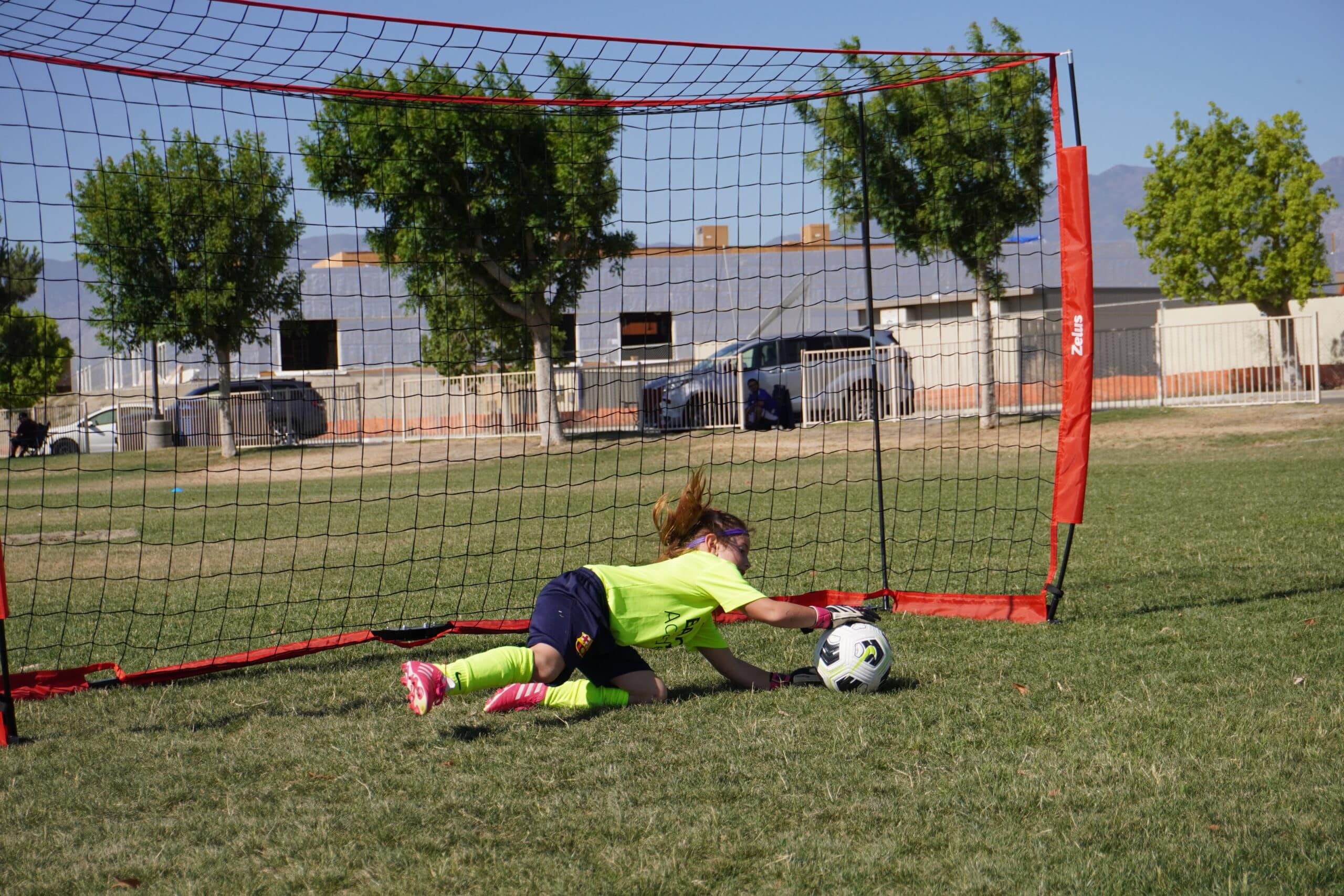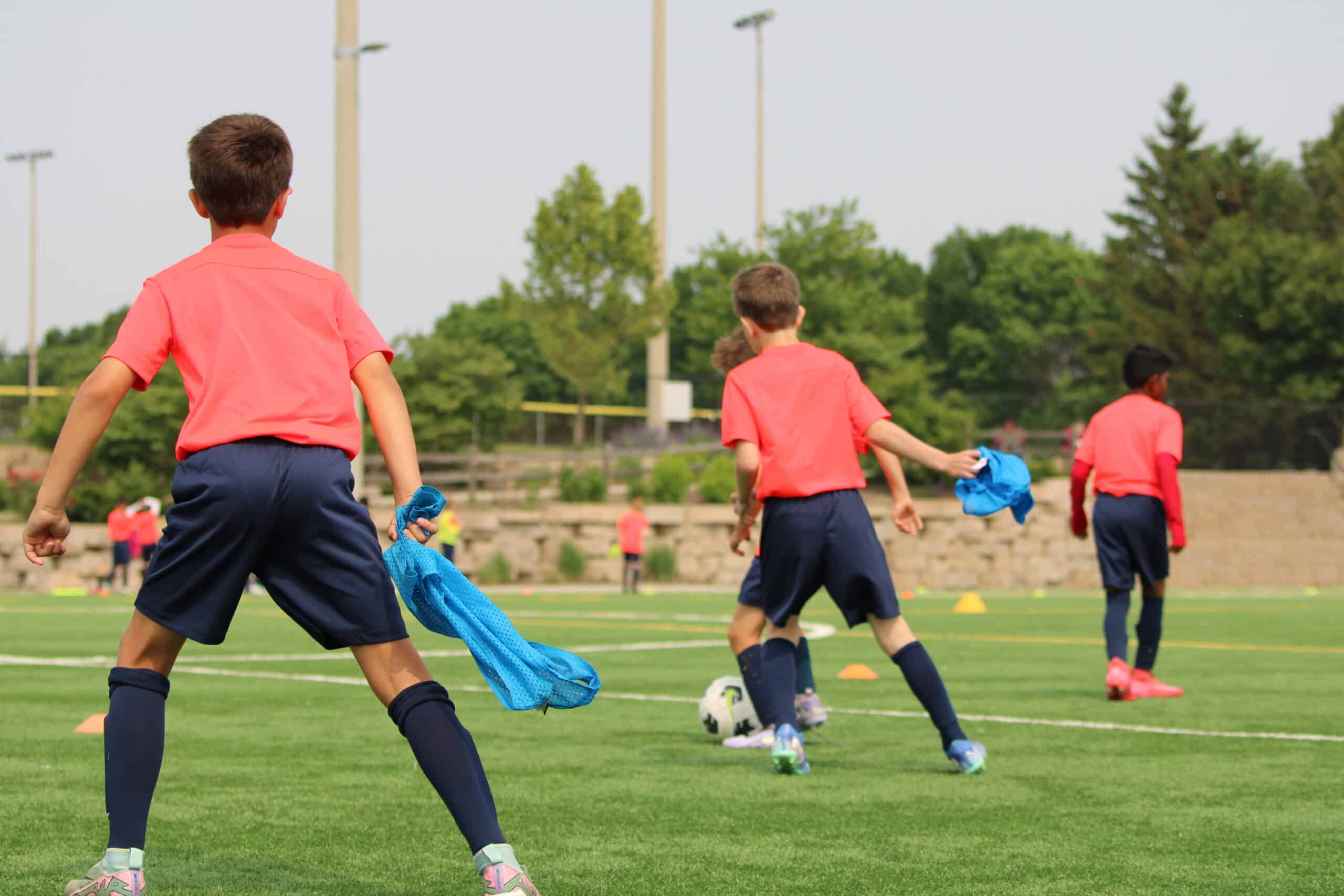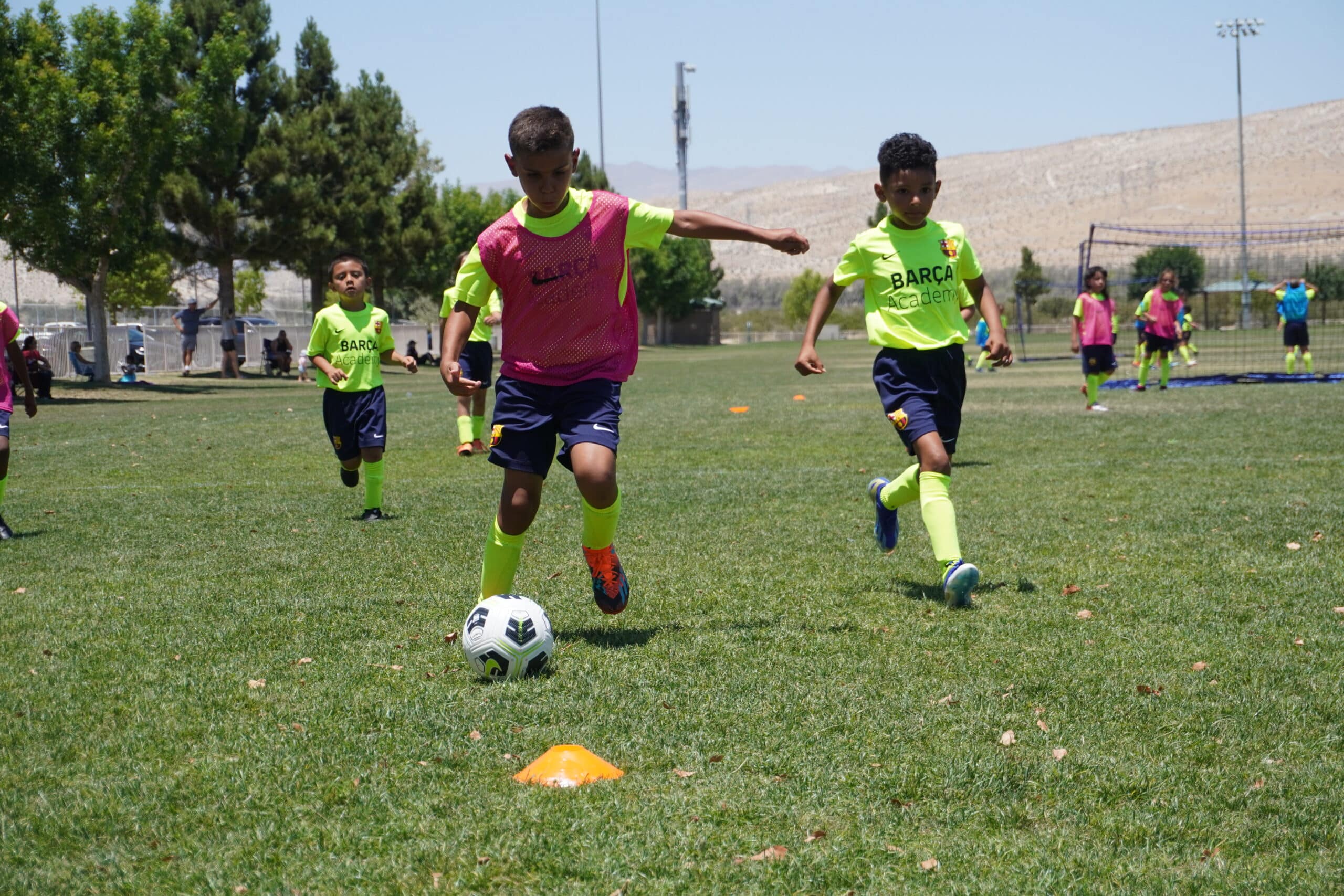Barça Academy understands the pivotal significance of nutrition within the realm of youth athlete development, helping them reach their full potential, both on and off the field.
By emphasizing the critical role nutrition plays in fueling growth, optimizing performance, preventing injuries, and expediting recovery, we aim to provide parents, coaches, and young athletes with valuable insights and practical guidance to ensure they make informed dietary choices that align with the core values of Barça Academy, such as respect, effort, ambition, teamwork, and humility.
The Role of Nutrition in Youth Athletic Development
It goes beyond just eating for sustenance; it’s about fueling the body for optimal performance, addressing growth and development considerations, and aiding in injury prevention and recovery. In this section, we dive into the multifaceted aspects of nutrition in youth athletic development.
Fueling the Body for Optimal Performance
Juvenile players at Barça Academy are akin to finely tuned machines, and the fuel they consume significantly impacts their performance on the field. Here’s why nutrition matters for optimal performance:
- Energy Demands: Football is a physically demanding sport, requiring bursts of energy, sprinting, and agility. Proper nutrition ensures that young athletes have the necessary energy reserves to excel during training sessions and matches.
- Macronutrients Balance: Carbohydrates are the primary source of energy for athletes. They should form a substantial part of their diet to sustain energy levels. Additionally, proteins and fats play critical roles in muscle development, recovery, and overall health.
- Timing Matters: The timing of meals and snacks is essential. Eating a balanced meal a few hours before training or a match provides sustained energy. Post-activity nutrition is equally crucial to aid in recovery.
Growth and Development Considerations
Our students are still in their formative years, and nutrition plays a crucial role in their growth and development:
- Nutrient Density: Growing bodies require a wide range of nutrients, including vitamins and minerals. A nutrient-dense diet ensures that young athletes get the building blocks they need for healthy bones, muscles, and organs.
- Caloric Needs: As they grow, children may have increased caloric requirements. It’s vital to strike a balance to avoid undernutrition or overconsumption, both of which can have adverse effects on performance and health.
- Bone Health: Adequate calcium intake is vital for strong and healthy bones. Players are at risk of injuries, including stress fractures, so maintaining bone health through proper nutrition is crucial.
Injury Prevention and Recovery
Although injuries are an unfortunate part of any sport, nutrition can play a role in preventing and recovering from them:
- Immune System Support: Proper nutrition boosts the immune system, helping young athletes fend off illnesses and infections, which can sideline them from training and matches.
- Muscle Recovery: Nutrition can aid in muscle recovery after strenuous training sessions or injuries. Adequate protein intake helps repair and build muscle tissue.
- Inflammation Control: Certain foods, like those rich in antioxidants, can help reduce inflammation. This is especially beneficial for athletes recovering from injuries or dealing with chronic conditions.

Key Nutrients for Young Athletes
To excel on the football field, athletes in Barça Academy need to pay close attention to their nutrition. This section dives into the key nutrients essential for their development and performance, outlining the importance of carbohydrates, proteins, fats, vitamins, and minerals in youth athlete nutrition.
Carbohydrates: The Primary Energy Source
Carbohydrates are the fuel that powers athletes through intense training sessions and matches. Understanding the nuances of carbohydrates is crucial:
- Complex vs. Simple Carbohydrates: Complex carbohydrates, found in foods like whole grains, fruits, and vegetables provide sustained energy, making them ideal for pre-training meals. Simple carbohydrates, found in sugary snacks and drinks, offer quick energy but can lead to energy crashes. These should be consumed sparingly.
- Timing of Carbohydrate Intake: They should consume complex carbohydrates several hours before training or a match to ensure sustained energy. Simple carbohydrates can be consumed in moderation for quick energy just before or during high-intensity activities.
Proteins: Building Blocks for Growth and Recovery
Proteins play a vital role in growth and recovery:
- Quality Protein Sources: Lean meats, poultry, fish, eggs, dairy products, legumes, and tofu are excellent sources of high-quality protein.
- Protein Requirements for Young Athletes: They require slightly more protein than their non-athletic peers to support muscle development and repair. The exact protein needs can vary based on age, gender, and training intensity.
Fats: The Essential Fats for Health and Performance
Fats are often misunderstood, but they are essential for youth athlete nutrition:
- Healthy Fat Sources: Avocado, nuts, seeds, and olive oil are sources of healthy fats that provide sustained energy. Fats from fried and processed foods should be minimized as they can hinder performance.
- The Role of Fats: Fats are essential for overall health, hormone production, and absorption of fat-soluble vitamins (A, D, E, and K). Athletes should prioritize unsaturated fats over saturated and trans fats.

Vitamins and Minerals: Micronutrients for Overall Health
Micronutrients, such as vitamins and minerals, are vital for maintaining overall health and performance:
Importance of Vitamins: Vitamin D is essential for bone health and immune function. Adequate exposure to sunlight and dietary sources can provide it. B vitamins play a role in energy metabolism and are found in whole grains, lean meats, and dairy products.
Essential Minerals: Calcium is necessary for strong bones and muscle function. Dairy products, leafy greens, and fortified foods are good sources. Iron is crucial for oxygen transport in the blood. Lean meats, beans, and dark leafy greens can supply iron.
By understanding the significance of these key nutrients and incorporating them into their diets, young athletes at Barça Academy can optimize their performance on the field. The next section will dive into the importance of proper hydration, which complements their nutrition efforts for peak athletic performance.
Hydration for Optimal Performance
Proper hydration is a cornerstone of nutrition at Barça Academy. In this section, we explore the significance of staying hydrated, the choice between water and sports drinks, and effective hydration strategies.
The Significance of Staying Hydrated
Staying adequately hydrated is paramount for everyone, as even mild dehydration can impair performance and jeopardize their health:
- Temperature Regulation: Proper hydration aids in regulating body temperature during strenuous physical activity, reducing the risk of overheating.
- Cognitive Function: Dehydration can affect concentration, decision-making, and coordination, all of which are critical on the football field.
- Muscle Function: Muscles require sufficient fluids to contract efficiently. Dehydration can lead to cramps and decreased muscle strength.
- Injury Prevention: Dehydrated athletes are more susceptible to injuries, including sprains and strains.
Water vs. Sports Drinks
The choice between water and sports drinks depends on the intensity and duration of the activity:
- Water: Water is the go-to choice for most training sessions, practices, and games, especially when the activity lasts less than an hour. It’s essential for maintaining basic hydration and doesn’t introduce unnecessary sugars or calories.
- Sports Drinks: Sports drinks with electrolytes and carbohydrates become beneficial during prolonged, intense activities that exceed an hour. They help replace lost electrolytes (sodium, potassium) and provide a source of quick energy.
Hydration Strategies for Young Athletes
They should adopt effective hydration strategies to ensure they are adequately hydrated during training and matches:
- Pre-Hydration: Encourage athletes to start hydrating well before physical activity. Drinking 16–20 ounces of water 2–3 hours before an event is a good practice.
- During Activity: For short bouts of exercise, regular water breaks are usually sufficient. For longer and more intense activities, sports drinks can help replenish electrolytes and energy.
- Post-Activity: After training or a game, athletes should continue drinking water to replace fluids lost during exercise. Monitor urine color; pale yellow is a sign of proper hydration.
- Individual Needs: Recognize that hydration needs can vary from person to person. Factors such as body size, sweat rate, and environmental conditions should be considered.
- Avoid Overhydration: While staying hydrated is crucial, overhydration can lead to a condition called hyponatremia, characterized by dangerously low sodium levels. It’s essential to strike a balance.

Conclusion
We encourage our athletes to prioritize nutrition by fueling their bodies wisely, staying hydrated, and seeking guidance when needed.
At Barça Academy, we are committed to holistic player development, and your nutrition choices reflect your dedication to excellence. By making informed choices, you’re not only enhancing your performance, but also embodying our core values. We are here to support your journey to success, both in football and in life, as you grow, excel, and thrive.
Here’s to a future filled with health, success, and the unwavering pursuit of excellence.












